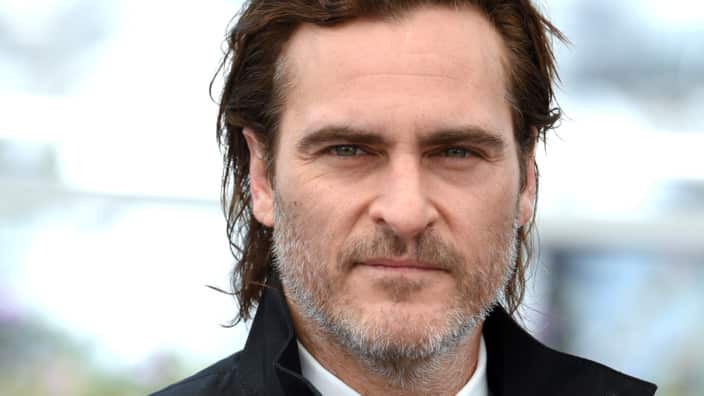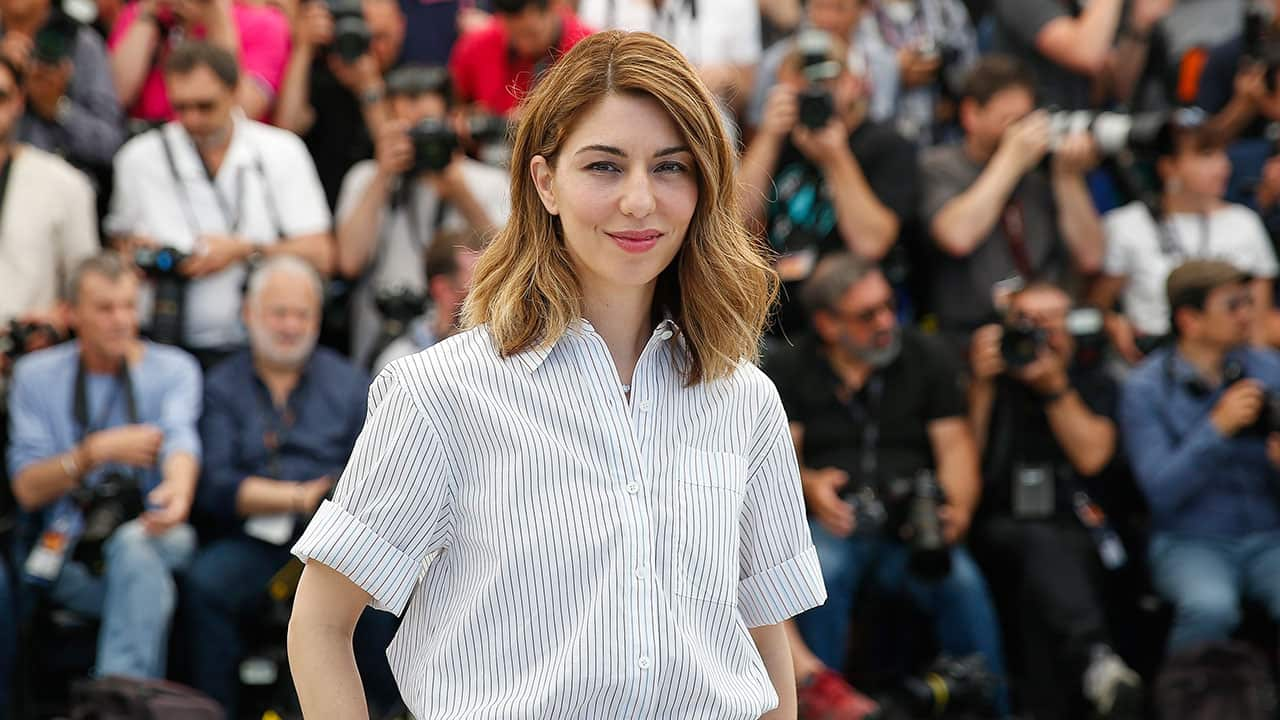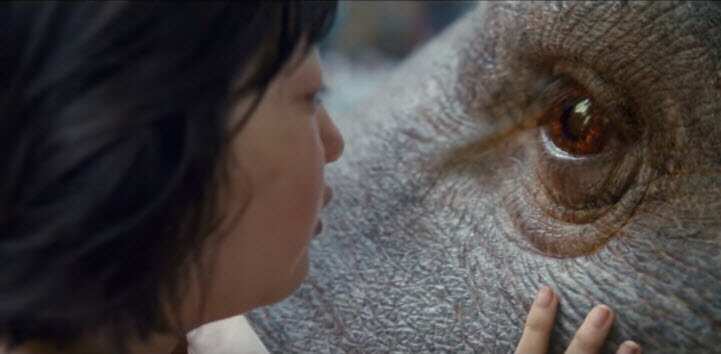At one point it seemed that Alien: Covenant and Dunkirk would be the tentpoles at Cannes. Yet neither blockbuster was keen to endure the scrutiny of the world’s most rabid critics. The Sydney-shot Alien has ultimately attracted a swathe of negative reviews, so skipping the festival may have been a good move, while Christopher Nolan was not keen to unveil a film that would be released in July.
So instead it seems Netflix took two of the prime morning timeslots, presenting two high calibre feature films (see below). Controversially, at the opening press conference, jury head Pedro Almodovar said he wouldn’t be giving awards to films that don’t screen in cinemas. Jury member Will Smith stuck up for Netflix (he has an upcoming project with the company) though ultimately no prizes were awarded to the streaming giant, and the films arguably didn’t deserve them.
THE AWARD WINNERS
The jury handed out awards to the films that were widely considered the best, though probably not in the categories some might have imagined.
Palme D'Or: The Square
(Sharmill Films)
Ruben Östlund’s follow-up to Force Majeure was a surprise winner. This audacious and highly original Swedish satire starring Denmark’s Claes Bang follows the suave curator of Stockholm’s swish museum of contemporary art, who becomes unstuck following actions he takes when his wallet, mobile phone and cufflinks are stolen on his way to work. The film’s two-and-a-half hour length tests our patience, not the least because every scene seems to go on forever, though Bang is easy on the eye and compelling. Reports coming out of Sweden suggest the actor, who speaks perfect British, should be the next James Bond; Variety even compared him to a young Pierce Brosnan.

Joaquin Phoenix attends the "You Were Never Really Here" Photocall during the 70th annual Cannes Film Festival at Palais des Festivals on May 27, 2017 Source: SBS
Best Actor (Joaquin Phoenix) and Best Screenplay (shared): You Were Never Really Here
Scottish director Lynne Ramsay’s You Were Never Really Here, based on Jonathan Ames’s 2013 novella, was still in the editing stage when it premiered at the festival, and I was really going along to see Joaquin Phoenix’s latest turn (before we see him as Jesus in Mary Magdalene, Australian director Garth Davis’s follow-up to Lion). Yet as with Elle in 2016, the violent film came late out of the gate to become a critics’ favourite. It pulls no punches, as Phoenix’s traumatised former soldier goes about taking down bad guys who are involved in child prostitution—and he kills them abruptly with a hammer. What is shown and what isn't shown here makes this economic 85-minute film highly original.
Best Screenplay (shared): The Killing of a Sacred Deer
(Madman)
Co-written and directed by London-based Greek director Yorgos Lanthimos, a self-proclaimed absurdist, Killing is not as good as his previous efforts, Dogtooth or The Lobster, which he also co-wrote with Efthymis Filippou, but the story surely is original. It pits Colin Farrell’s surgeon and his ophthalmologist wife, played by Nicole Kidman, against a seemingly unassuming teenager, played by Barry Keoghan (Rachel Griffiths’ young lover in Mammal, and soon to be seen in Dunkirk). The 24 year-old Dublin actor conjures a kind of menace that you never imagined.
Best Actress: Diane Kruger, In the Fade
Working for the first time in her native tongue, German-born Kruger formed a strong bond with German-Turkish director Fatih Akin (Head-On, The Edge of Heaven) and the strength of their collaboration shows in her emotional and feisty performance. She plays a woman whose Kurdish husband and child are killed by a suicide bomber, and the film unspooled just after the Manchester attack. Kruger dedicated her prize to everyone who “has survived an act of terrorism and who is trying to pick up the pieces and go on living after having lost everything”. The film plays at Sydney Film Festival this June.

Sofia Coppola at the Cannes photocall for 'The Beguiled' Source: AAP
Best Director: Sofia Coppola, The Beguiled
(Universal, July 13)
As only the second woman to take out the Cannes directing prize, Sofia Coppola, when accepting the award, declared her admiration for Jane Campion, who remains the only woman to have won the Palme d’Or. Apart from re-teaming with Kirsten Dunst (The Virgin Suicides, Marie Antoinette) and Elle Fanning (Somewhere) for this sumptuously filmed female tour-de-force, Coppola was keen to work with Nicole Kidman, the unofficial Queen of Cannes with four movies in the programme. Kidman also appears in The Killing of a Sacred Deer, Top of the Lake: China Girl and How to Talk to Girls at Parties. The resurgent Aussie was awarded a special 70th Anniversary Award for her efforts, though had already returned to her Nashville base to be with her family, and was unable to personally accept it.
Grand Prix: 120 Beats Per Minute
The French AIDS drama had been an early favorite, together with Loveless, to take out the Palme d’Or. When asked by a journalist at the press conference why it didn’t win, Almodovar choked up, admitting he loved it. Directed by Robin Campillo, the co-screenwriter of the Palme d'Or-winning film The Class, 120 BPM centres on the unifying force of the activist group ACT UP in Paris in the 1990s during the AIDS crisis. Campillo said he was so happy the film was being well received internationally as he considers it a very French story.
Jury Prize: Loveless
(Palace)
A prime contender from the moment it screened, this fifth film and third Cannes competition entry from Russian maestro Andrey Zvyagintsev (The Return, The Banishment, Elena, Leviathan) is again a searing portrait of human foibles. It focuses on a marriage breakdown where a self-obsessed husband and wife fail to notice their 12 year-old son’s agony. When he goes missing they are forced to come together to find him.
OTHER FILMS WITH AUSTRALIAN DISTRIBUTORS
To Be Sure
(Palace)
At the Directors’ Fortnight premiere, audiences were wildly appreciative of Carine Tardieu’s
poignant comedy, which follows Erwan (François Damiens) as he discovers that his DNA does not match his father’s. Cecile de France, the Vatican press attache currently standing up to Jude Law’s pontiff in The Young Pope on SBS, is a rare French actress who doesn't descend into coquetry or too much silliness. Here she’s a tough but lonely doctor who falls for Damiens’ unpretentious nice guy.
The Rider
(Sony)
The second project from writer-director Chloe Zhao (Songs My Brothers Taught Me) also screened at Directors’ Fortnight and took out the top prize in that section. It focuses on a young cowboy who suffers a near fatal head injury and embarks on a search for a new identity.
Happy End
(Transmission)
Not a bad film, though not one of director Michael Haneke’s best. It doesn’t help that Haneke’s previous film, the Palme d’Or winning, Oscar-nominated Amour to which this is a quasi-sequel, was one of his best. Nonetheless, that film’s star, the now-86-year-old Jean-Louis Trintignant excels here, as of course does Isabelle Huppert as his daughter. (The characters retain the same last names from the previous film) Looking far more feeble, Trintignant’s Georges desperately wants someone, anyone, to put him out of his misery. The film (which screens at SFF in June) welcomes the presence of Mathieu Kassovitz, who has recently made a big return to acting as the star of Bureau des Legendes, a kind of French Homeland.
NETFLIX MOVIES

'Okja' (2017). Source: YouTube
The Meyerowitz Stories teams some of the best comedic Jewish Hollywood actors - Dustin Hoffman, Adam Sandler and Ben Stiller - with director Noah Baumbach (Frances Ha, The Squid and the Whale). Sandler finally comes up with the dramatic goods for the company that has given his lame comedies recent support. Of course, the 50-year-old actor, who had previously appeared in the 2002 Cannes entry P.T. Anderson’s Punch-Drunk Love, has never enjoyed popularity in France, but keeps coming back hoping to rectify that.
AUSTRALIAN MOVIES
The only feature from Australia was David Stratton: A Cinematic Life, which has already been released in Australian cinemas this past February. The venerable gent pointed out in Cannes that the film is now headed for the ABC, airing in three parts over three weeks in June.
Top of the Lake: China Girl, co-directed by Jane Campion and Ariel Kleiman, also world premiered, though the six-part series was not given huge fanfare as it screened in two smaller cinemas. It flew so far under the radar that many critics weren’t even aware it was in Cannes.
SUNDANCE MOVIES

Patti Cake$ (2017) Source: Sundance
Wind River, written and directed by Taylor Sheridan (the writer of Hell Or High Water) won the directing award in the Un Certain Regard sidebar. The beautiful and moving film, his directing debut, which is set around a snow-covered Native American reservation, will screen at SFF in June.
Patty Cake$ also features at SFF. Starring Australian Danielle Macdonald as a feisty New Jersey rapper, it was one of the big Sundance successes, and closed Cannes’ Director’s Fortnight.
Bushwick, starring Guardian of the Galaxy’s Dave Bautista, was picked up by Netflix to stream in August.
Brigsby Bear - dubbed “The Truman Show meets Room” by The Guardian - features Claire Danes and Mark Hamill in minor roles, and like Bushwick it was not a huge Sundance stand-out. It’s had better reviews though, and will be released by Sony following SFF screenings in June.
An Inconvenient Sequel, the follow-up to 2006's An Inconvenient Truth will be released on August 24th by Paramount, and Al Gore will come out to Australia for the premiere.
Share


